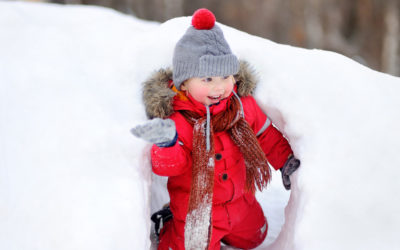Halloween is just around the corner. This family-friendly holiday is exciting for kids of all ages, as they get to dress-up as their favorite character and visit neighbors who are passing out their favorite candy.
If you are the parent or guardian of a child with autism, you may be hesitant to engage in the festivities. Children on the spectrum absolutely deserve to have a fun, enjoyable and safe halloween–and there’s a few things to keep in mind to make sure that that happens.
Tips for Reducing Anxiety during Trick-or-Treating
If your child is afraid of the dark: bring flashlights, use glow sticks and wear light up shoes. All of these can help reduce the anxiety that being in the dark might cause. This is also where planning your trick-or-treat route ahead of time can be helpful- visit the neighborhoods you know will be well-lit to reduce your child’s anxiety.
If your child prefers routines: practice your route! Having a pre-planned route that you can walk with your child ahead of the big night will help them establish familiarity with the actions they’ll be taking while trick-or-treating. It would also be helpful to visualize what their night will be like. Use photos, make a map and try your best to simulate what your child may experience in terms of sensory stimulation.
If your child faces challenges with social cues and communication: help them script their best “trick-or-treat” pitch. Whether it’s verbal or signing, have them try communicating the classic “trick-or-treat” that your neighbors will expect when they open the door. Help prepare them for any possible exchanges such as: how much candy they should take, what candy they should choose if given the choice, and of course, how to thank the person giving them treats and how to be polite and mindful of other trick-or-treaters.
Costumes
If your child is sensitive to touch and sensations, wearing a costume may not be the most enjoyable experience for them. Luckily, there are many options for costumes out there that are easy and light. We recommend shopping for costumes early to allow for plenty of time to make a decision and try things on. Additionally, if you have the time to set aside, a homemade costume can make all the difference for a child with sensory processing issues. Choose fabrics your child feels comfortable in and have them practice moving and walking in their costumes ahead of time. If you allow plenty of time and practice, your child’s time in their costume will be enjoyable and you can reduce instances of tantrums or anxiety.
Other Ways to Celebrate & Trick-or-Treat Alternatives
Even with all the planning and preparation, trick-or-treating still may not be the best way for your child to enjoy their Halloween. This is perfectly fine. There are countless alternatives to the traditional trick-or-treating that may be right for you and your child!
Some of them are Indoor Activities that can be enjoyed at home such as
- Carving Jack-O-Lanterns: This simple Halloween past time can be fun, spooky and help nourish your child’s creativity. We recommend letting the creativity flow with custom designs, or trying out some of the great ideas in this Good Housekeeping piece of 25+ carving ideas.
- Giving out Candy: It may seem simple, but plenty of children, especially younger children, get plenty of joy from giving candy as they do going around and receiving it. It boils down to the feeling of involvement that participating in the event can bring. Get your costumes, decorations, and bowls of candy and let the fun come to you. This is also a great time to let your child practice their social interactions with trick-or-treaters that come to the door. Be sure to have a stash of candy for yourselves!
- Cooking or Baking Halloween-Themed Recipes: From jack-o-lantern cookies to “hot dog mummies” and everything in between, this Food Network list has a bunch of great ideas for Halloween-themed recipes you can make with your kids. Try some of them out and let us know your favorites!
Other alternatives are Community Events that take place in designated spaces around the city for optimal safety, inclusivity and overall enjoyment. Check with your local park districts and chamber of commerce for a list of family events. Going to a community event or a school-sanctioned event can help make your child comfortable while celebrating Halloween. Seeing the people and peers they know around them offers them a comforting sense of familiarity in a time of masks and scares.
While the City of Chicago has not cancelled Halloween due to COVID-19, you may also decide to opt for safer alternatives to trick-or-treating or even virtual events.
Keep these things in mind this Halloween and you and your child are in for a spook-tacular holiday. As always, don’t forget to keep up with us on Facebook, Instagram and Twitter for more autism and ABA related news and events. Happy Halloween from all of us at The Place for Children with Autism- stay safe, and have fun!



